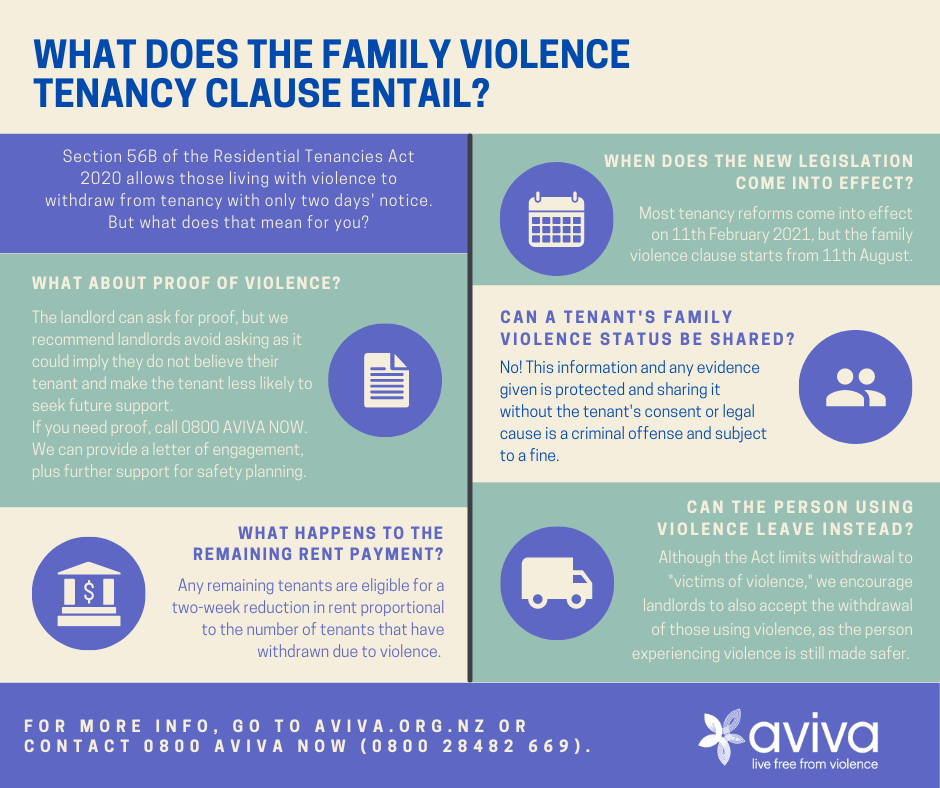

11th of February, 2021

As of today, 11 February 2021, Phase 2 of the Residential Tenancies Act 2020 has come into effect, offering the first major tenancy reform in New Zealand in 36 years. The Act includes a section allowing those experiencing family violence to withdraw from tenancy with only two days’ notice, starting from 11th August 2021. [EDIT: The start date has since been delayed].
This legislation is sure to have a positive impact on those living with violence.
Housing insecurity and family violence have always been inextricably linked. Aviva profoundly felt the effects of this after the Christchurch Earthquake in 2011, when the loss of housing and security for many led to increased rates of family violence and greater demand for support. Even a decade on, we still see a significant percentage of our client base come to us with interconnected housing issues.
More protections for tenants could help lower New Zealand’s abysmal family violence rates by limiting the strain that unstable housing puts on families and relationships. What’s more, the inclusion of the family violence clause will be profoundly important in keeping people safe from violence by giving them more freedom to get out of a violent situation.
However, we do have some concerns.
We worry that landlords may now invasively ask potential tenants about their history of family violence. We would also prefer if the act allowed those using violence to utilise the withdrawal, as their doing so would still make the person experiencing violence safer.
Our primary concern is over the evidentiary requirements for withdrawal. Admitting you are experiencing violence is already such a difficult process and we fear the requirement may act as a barrier. A person experiencing violence may worry about what kind of evidence they will be asked for and whether they will be believed. The requirement also disregards that most violence taking place today will never come to the attention of the police or professional services like Aviva, meaning there may be no “evidence” to share.
We are also concerned about what kind of evidence landlords will ask for and if it will keep the dignity of the person experiencing violence or using violence. We would hate to hear of a client being interrogated by a landlord who may not have any skills or knowledge in this area. For example, a limited understanding on emotional or psychological violence could cause a landlord to request evidence of physical violence even when there isn’t any.
We have followed up with Parliament regarding these concerns. You can read our full letter to Members of Parliament detailing our reasoning here.
Despite these concerns, we recognise that this reform is an overall positive one for our clients and one more step toward creating a violence-free Aotearoa.
We know you might have some questions as to what specifically this Act entails and what the Family Violence clause means for you. See our answers to frequently asked questions below:
FAQs for those living with violence*
*These FAQs are based on amendments to the Residential Tenancies Act 2020 as of 11/02/2021 and are subject to change. [EDIT: Please note the start date of the phase 3 updates, including the family violence clause have been delayed, and a new start date has not yet been set].

Read more about the specific changes here.
Read the full Residential Tenancies Amendment Act 2020 here.